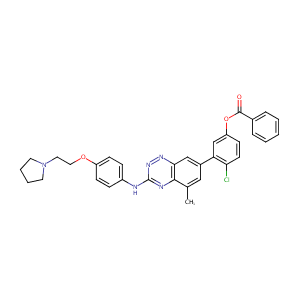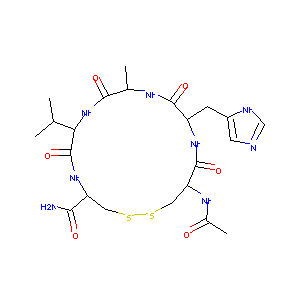| 1 |
Recurrent recessive mutation in deoxyguanosine kinase causes idiopathic noncirrhotic portal hypertension.Hepatology. 2016 Jun;63(6):1977-86. doi: 10.1002/hep.28499. Epub 2016 Mar 31.
|
| 2 |
ClinicalTrials.gov (NCT00509548) Open-Label, Pilot Study of TG100801 in Patients With Choroidal Neovascularization Due to AMD. U.S. National Institutes of Health.
|
| 3 |
ClinicalTrials.gov (NCT00264433) A Study of the Safety and Effects of ADH-1 Given Intravenously as a Single Agent. U.S. National Institutes of Health.
|
| 4 |
Topical administration of a multi-targeted kinase inhibitor suppresses choroidal neovascularization and retinal edema. J Cell Physiol. 2008 Jul;216(1):29-37.
|
| 5 |
Clinical and pharmacological phase I evaluation of Exherin (ADH-1), a selective anti-N-cadherin peptide in patients with N-cadherin-expressing soli... Ann Oncol. 2009 Apr;20(4):741-5.
|
|
|
|
|
|
|


